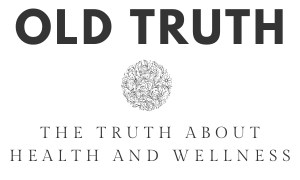Receiving an incorrect diagnosis is more common than you’d think—according to a recent study, diagnostic errors affect as many as 12 million adults in the United States. “You have a good chance of being misdiagnosed if you have a really rare disease or a really common disease which presents non-specifically or in some atypical fashion,“ says Mark Graber, MD, founder, and president of the Society to Improve Diagnosis in Medicine. Here are five common conditions you probably haven’t heard of but should definitely know about to avoid a potentially harmful misdiagnosis.
Scoliosis
Scoliosis, a sideways curvature of the spine, occurs during the growth spurt before puberty. Although some cases of scoliosis are caused by cerebral palsy and muscular dystrophy, the exact cause of most scoliosis cases is unknown. Approximately three percent of adolescents suffer from scoliosis.
If you’re suffering from chest pain or back pain due to scoliosis, consider seeking scoliosis treatment. Scoliosis Systems, a team of doctors and therapists operating 15 regional treatment centers in the United States, offers treatment for scoliosis with a multidisciplinary approach. The pioneered Scolio-Fit program for scoliosis patients helps reduce the symptoms of scoliosis using non-surgical scoliosis treatment and physical therapy. With the right treatment plan, individuals with scoliosis can enjoy an improved quality of life.
Myocarditis
Myocarditis, an inflammation of the heart muscle, affects the heart muscle and heart electrical system, which can reduce the heart’s ability to pump and cause abnormal heart rhythms.
Most cases of myocarditis are caused by viral infections. However, myocarditis can also occur due to a reaction to medications or a general inflammatory condition. According to Mayo Clinic, the signs and symptoms of myocarditis include chest pain, fatigue, shortness of breath, and arrhythmias.
The Myocarditis Foundation, a myocarditis research foundation led by world-renown physicians, researchers, and patients, strives to increase awareness of myocarditis among medical professionals and the public to advance the development of accurate diagnostic methods. Effective treatment methods for individuals with myocarditis can minimize or eliminate progression to heart failure and sudden death.
Endometriosis
Endometriosis (”endo”) is a chronic condition in which tissue similar to the lining of the uterus grows outside of the uterus. Endo can cause pelvic pain, swelling, and scarring of the pelvic organs. Endo affects approximately 3–10 percent of women of reproductive age and 25–50 percent of infertile women.
Endometriosis is often mistaken for other conditions that can cause pelvic pain, including pelvic inflammatory disease (PID), ovarian cysts, and irritable bowel syndrome (IBS). Some endo patients also suffer from IBS, which can complicate diagnosis.
According to Caroline Macon, writer at Do You Endo, many medical professionals haven’t heard of endometriosis, making it difficult for endo patients to receive an accurate diagnosis. Because there is no cause or cure, further research is needed to move forward with better treatment options and to improve the quality of life for individuals suffering from endometriosis.
Celiac Disease
Celiac disease is an autoimmune disease that occurs in genetically predisposed individuals. For individuals with celiac disease, the ingestion of gluten can lead to serious damage to the small intestine. Celiac disease affects approximately one in 100 people worldwide.
Approximately 83 percent of people with celiac disease remain undiagnosed or have been misdiagnosed with other conditions such as IBS. The symptoms of celiac disease vary widely from person to person—while some individuals experience abdominal pain and constipation, others experience headaches and depression.
Thyroid Disease
One of the most common causes of hormonal imbalances, thyroid disease, triggers the overproduction of (hyperthyroidism) or underproduction (hypothyroidism) of the thyroid hormone. In the United States, 20 million individuals suffer from some form of thyroid disease, and up to 60 percent of people with thyroid disease are unaware of their condition.
Because the thyroid hormone is critical to metabolic processes in the body, unbalanced levels can cause weakness, fatigue, and weight fluctuations. The symptoms of thyroid disease are often mistaken for other conditions, such as depression.
Ultimately, understanding the signs and symptoms of commonly misdiagnosed conditions can help you avoid a potentially harmful misdiagnosis.


Comments are closed, but trackbacks and pingbacks are open.